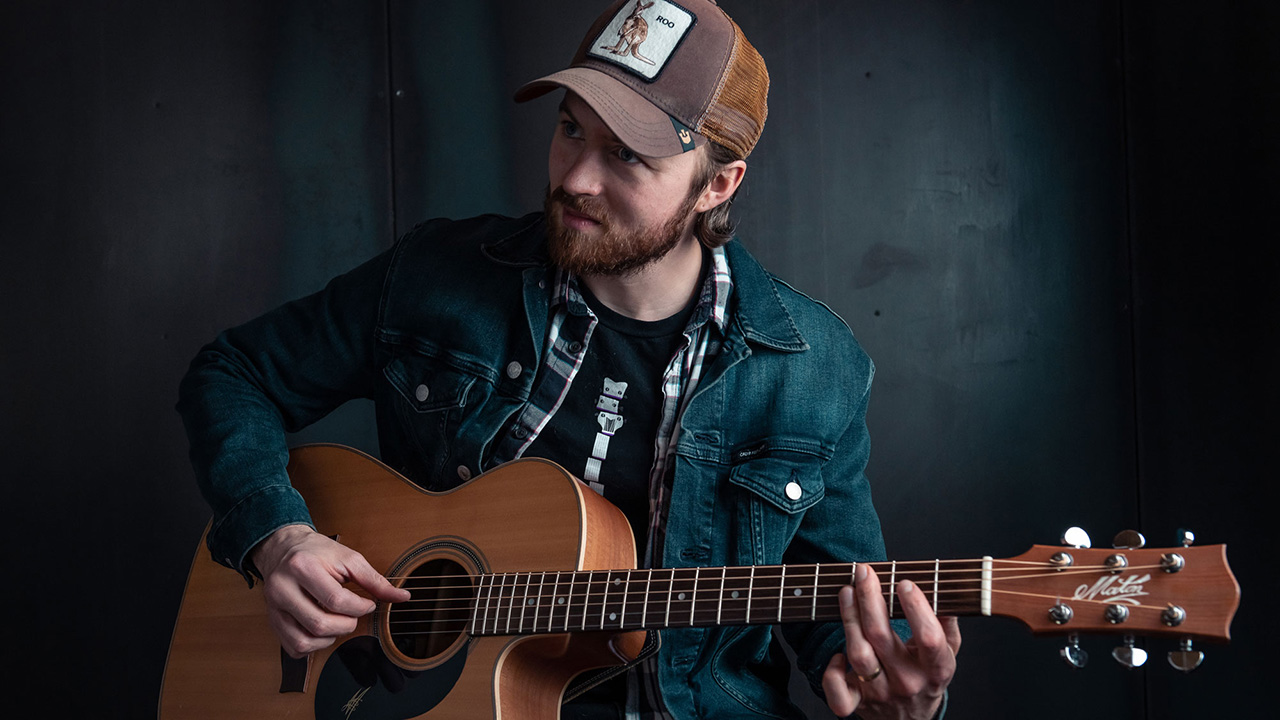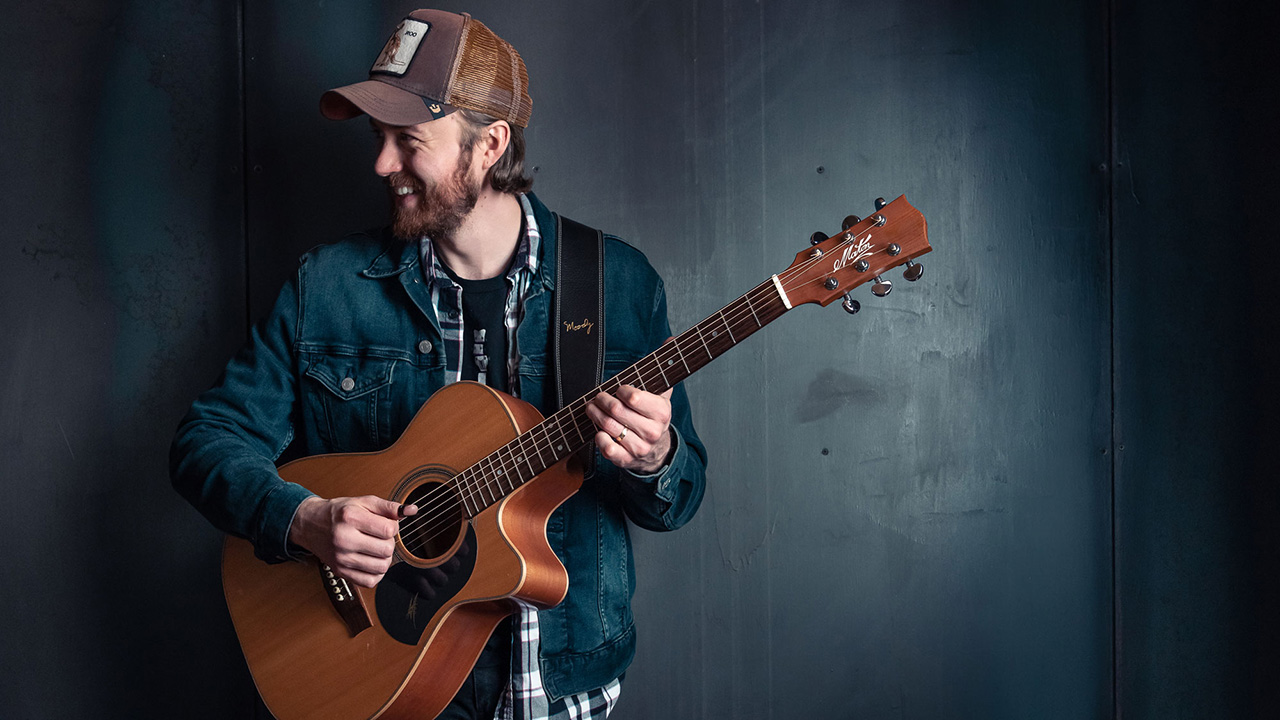“Phil and Tommy Emmanuel were so encouraging. Phil said, ‘Most kids are listening to Limp Bizkit, and you’re playing Eric Johnson and Jerry Reed!’” Meet Joe Robinson, the Australian acoustic virtuoso who turned down major labels to make it in Nashville
After rejecting a series of record contracts from Sony, the Australia’s Got Talent alumnus made the move to Nashville and learned how to be a sideman

All the latest guitar news, interviews, lessons, reviews, deals and more, direct to your inbox!
You are now subscribed
Your newsletter sign-up was successful
From humble origins in New South Wales, Australia, Joe Robinson emigrated to Nashville, Tennessee, at 18, found success beyond his wildest dreams and then eased into a quiet life in rural Montana. At 32, the acoustic virtuoso has accrued a lifetime’s worth of musical memories in a short span.
He became immersed in music when he started playing piano aged six, moving to guitar when he was 10. “I felt like it was my instrument,” he says. “I could take it wherever I wanted, and I became determined to figure it all out.”
He did figure it out – and by the time he was 11 he’d made some famous friends. “In Australia, Tommy and Phil Emmanuel are very famous,” he says. “It’s a small music community; a musician from my town heard me play, gave me Phil’s number, and I connected with them at the Tamworth Country Music Festival.
“The Emmanuel brothers were so generous and encouraging. Phil said, ‘Joe, most kids are listening to Limp Bizkit crap, and you’re playing Eric Johnson and Jerry Reed.’ When I saw him and Tommy play, it was life-changing – they were the greatest players I’d ever seen. I was determined to figure out how to play like that.”
It didn't take long. By 13, Robinson had won the Australian National Songwriting Competition. “I went to the US at Tommy's invitation,” Robinson recalls. “To get there, I borrowed $10,000 from my grandparents – which I paid back.
“I went door-knocking on Music Row in Nashville. I met industry executives and made all kinds of connections. And when I got back to Australia, I connected with Sony Music, who told me they were looking for people to be on Australia’s Got Talent.”
Robinson’s audition at age 16 was a success, leading to a Sony recording contract. But he wasn’t into it. “I said, ‘I’m not signing that. I’m going to Nashville.’ This went on and on – every time I was on the show I refused to sign.
All the latest guitar news, interviews, lessons, reviews, deals and more, direct to your inbox!
“I said, ‘You can cut me out of the show.’ But I was one of the most popular people on it, so I managed to win without signing any of the contracts. It led to a cash prize of $250,0000, which allowed me to move to Nashville alone when I was 18.”
Since his migration he’s released six albums, his last being 2022’s The Prize. Life’s been good – which he partly attributes to the inspiration inherent in the local scene. “Nashville is very much about the song and respecting the lyrics,” he says. “I had to kind of learn to be a sideman in Nashville and how to write songs.
“I learned how to record, how to be in the studio, how to lead sessions and write number charts. It was a well-rounded musical education – I went to the University of Working in Nashville.”
As much as Robinson loved it, the town’s hustle and bustle didn’t appeal. “I moved away two years ago to Montana,” he says. “My wife and I live on a rural property. I feel like I learned what I needed in Nashville, and it was time for a change.”
After the pandemic caused a 60-date tour to be canceled, I rethought how much I wanted to be on the road
Since his geographical move, Robinson has musically moved into the electric space. “The appeal with the acoustic is that it’s a self-contained arrangement,” he says. “I can be on stage and I don’t need anybody.
“Some say when you’re alone on stage, you’re exposed – but if I’m on stage with others, I’m at the mercy of what they’re playing. But I play the electric guitar too, and I enjoy both. Living in both worlds is great – they require a very different touch.”
Robinson recently put his well-loved J.R Signature Maton acoustic aside in favor of peace and relaxation. “My son was born six months ago,” he says. “I’ve kind of taken a year off, to be honest.”

But not quite: “I built a studio on our property. I did all the carpentry myself. My wife and I bought a house that needed a lot of work. I’ve honestly been enjoying not playing as much music and working around the property.”
Robinson currently has a few projects in the works. “After the pandemic caused a 60-date tour to be canceled, I rethought how much I wanted to be on the road,” he explains. “I’m at the point where I don't need to tour.
“I appreciate that – it allows me to live in a beautiful rural setting. I’ve got two albums I’m working on now, and keeping up with social media is a full-time endeavor. There are a million little projects going on, but I’m just enjoying it all one moment at a time.”
- The Prize is out now.
Andrew Daly is an iced-coffee-addicted, oddball Telecaster-playing, alfredo pasta-loving journalist from Long Island, NY, who, in addition to being a contributing writer for Guitar World, scribes for Bass Player, Guitar Player, Guitarist, and MusicRadar. Andrew has interviewed favorites like Ace Frehley, Johnny Marr, Vito Bratta, Bruce Kulick, Joe Perry, Brad Whitford, Tom Morello, Rich Robinson, and Paul Stanley, while his all-time favorite (rhythm player), Keith Richards, continues to elude him.


